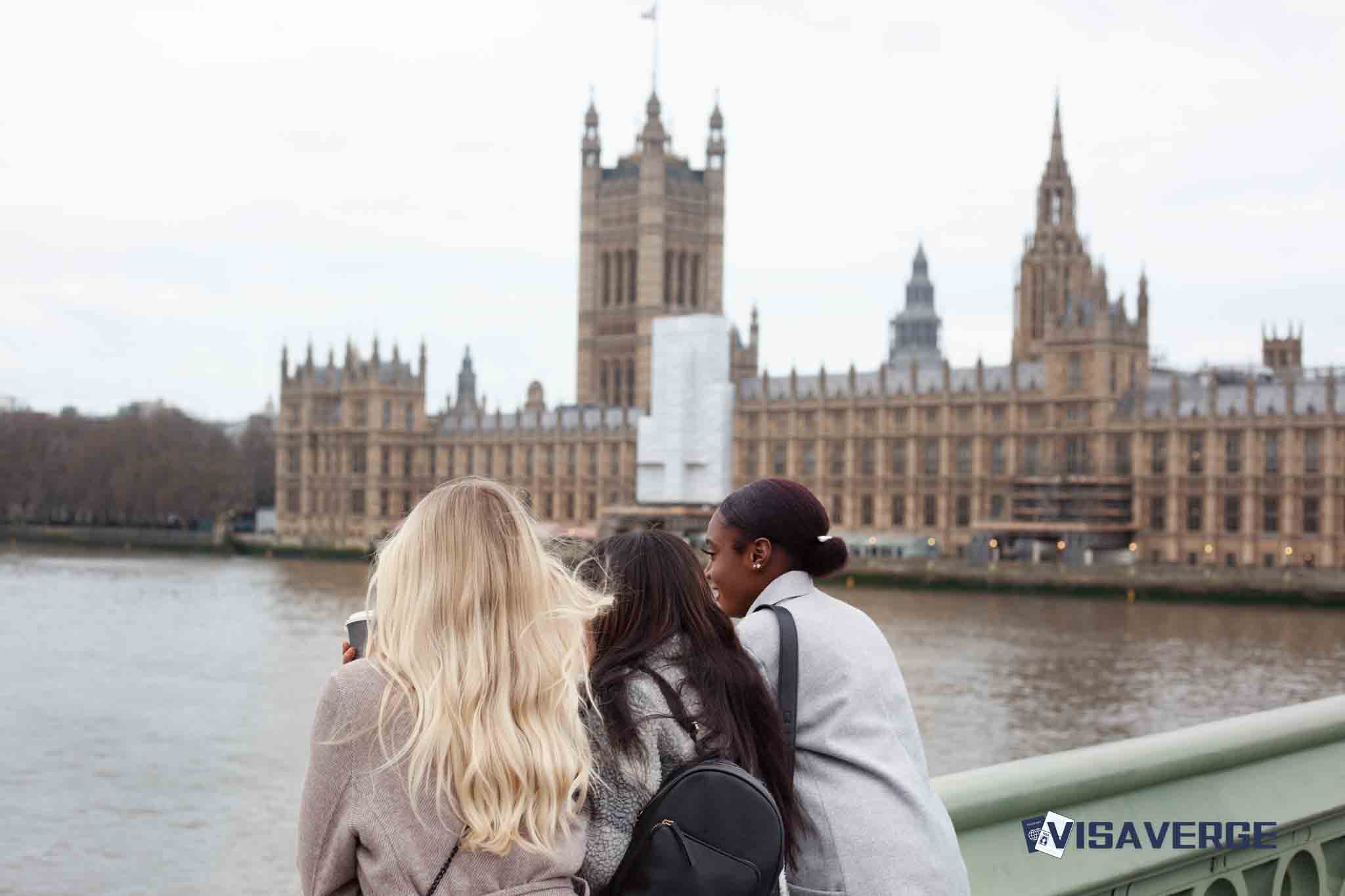Key Takeaways
• A UK tribunal ruled in July 2025 that an Iraqi asylum seeker with a speech impediment faces persecution if returned.
• UK’s 2025 asylum laws tightened border security, removed citizenship eligibility for irregular arrivals after February 10, 2025.
• The tribunal emphasized asylum seekers cannot be forced to hide identities or political beliefs to avoid harm.
An Iraqi asylum seeker with a speech impediment has won the right to stay in the UK, after a tribunal ruled that returning him to Iraq would expose him to discrimination and possible persecution. The decision, made in July 2025, highlights how personal circumstances—such as a speech impediment—can shape the outcome of asylum claims in the UK.
The man, known as HR, is a Kurd who says he suffered mistreatment and humiliation in Iraq because of his speech impediment. He also took part in political demonstrations and posted critical comments about the Iraqi government on social media. The UK Home Office argued that HR could safely return to Iraq if he deleted his Facebook account and kept his political views private. However, the upper immigration tribunal disagreed, finding that HR’s political beliefs were genuine and that he could not be expected to hide them—or his speech impediment—if he returned to Iraq.

This case comes at a time of major changes in the UK’s asylum and immigration policies. The government has introduced new laws and announced stricter rules for people seeking asylum, especially those who arrive by irregular routes. These changes have sparked debate about the balance between border security and the rights of vulnerable people, such as those with disabilities or mental health needs.
Why the Tribunal’s Decision Matters
The tribunal’s ruling is important for several reasons. First, it recognizes that a speech impediment can be more than a medical issue—it can also be a source of discrimination and even persecution, especially in countries where people with disabilities face stigma. Second, the decision shows that asylum seekers should not be forced to hide their identities or beliefs to avoid harm. The tribunal said HR’s political opinions, shaped by his experiences of discrimination, were a core part of who he is.
According to analysis by VisaVerge.com, this case sets a precedent for how UK authorities should consider the risks faced by asylum seekers with disabilities or other vulnerabilities. It also raises questions about how the UK treats people who cannot easily “blend in” or hide their differences if returned to their home countries.
Background: HR’s Story and the UK’s Response
HR’s journey to the UK began after years of facing abuse and humiliation in Iraq because of his speech impediment. He says he was mocked, excluded, and sometimes threatened. His involvement in political protests and his outspoken posts on social media made him even more visible to authorities and to those who might wish to harm him.
When HR applied for asylum in the UK, the Home Office rejected his claim, arguing that he could avoid trouble in Iraq by deleting his social media accounts and staying quiet about his political views. But the tribunal found this argument unrealistic and unfair. The judges said it was not reasonable to expect HR to erase his online presence or to hide his beliefs, especially since his speech impediment made him stand out.
The tribunal’s decision reflects a broader understanding of what it means to be at risk of persecution. It’s not just about what someone believes, but also about how their personal characteristics—like a speech impediment—can make them targets.
Recent Policy Changes Affecting Asylum Seekers
The UK government has made several major changes to its asylum and immigration system in 2025. These changes are meant to strengthen border security and reduce irregular migration, but they have also made it harder for many asylum seekers to find safety in the UK.
Key policy developments include:
- Border Security, Asylum and Immigration Bill 2025: Introduced in January 2025, this bill gives law enforcement more power to investigate and stop smuggling gangs. It also aims to make the asylum system tougher, with new rules for how claims are processed.
- Repeal of the Safety of Rwanda Act: The government has scrapped its plan to send some asylum seekers to Rwanda for processing. This move is seen as a shift toward a more humane approach, but critics say other new rules still make life difficult for asylum seekers.
- Citizenship Eligibility Changes: In February 2025, the government announced that anyone who arrives in the UK by irregular means after February 10, 2025, will not be allowed to apply for British citizenship. This rule has been criticized for punishing people who have no safe or legal way to reach the UK.
How These Changes Affect Asylum Seekers
The government says these new policies are needed to stop people from making dangerous journeys and to break up smuggling gangs. But refugee organizations warn that the lack of safe and legal routes forces many asylum seekers to risk their lives and then face harsh penalties if they reach the UK.
For people like HR, who already face discrimination because of a speech impediment or other disability, these policies can make an already difficult situation even worse. The uncertainty and stress of the asylum process can also harm mental health, especially for those who have experienced trauma or abuse.
Mental Health and Vulnerable Asylum Seekers
Many asylum seekers struggle with mental health problems, including anxiety, depression, and post-traumatic stress. The long wait for a decision, fear of being sent back, and the challenges of living in a new country can all add to the pressure.
Recent reports highlight the need for better support for asylum seekers, especially those with disabilities or mental health needs. Organizations like the Mental Health Foundation have called for more resources and training for staff who work with asylum seekers, so they can spot signs of distress and provide help.
Legal and Human Rights Concerns
Some lawyers and human rights groups argue that the UK’s new asylum policies may break international law. The 1951 UN Refugee Convention says countries should not punish asylum seekers for entering illegally if they are fleeing danger. Critics say the UK’s rules on citizenship and detention go against this principle.
The government insists that its policies are fair and necessary. Ministers say they want to stop people smugglers and make the asylum system work better for those who really need protection. At the same time, they say they are committed to treating all asylum seekers with dignity and respect.
Step-by-Step Guide: How to Claim Asylum in the UK
For anyone thinking about seeking asylum in the UK, it’s important to know the steps involved. Here’s a simple outline of the process:
- Initial Application: As soon as you arrive in the UK, you must tell an official that you want to claim asylum. You can do this at the border or at an immigration office.
- Screening Interview: You’ll have a short interview where you give your name, country of origin, and explain why you need protection.
- Main Interview: Later, you’ll have a longer interview where you tell your full story. This is your chance to explain why you can’t go back to your home country.
- Decision: The Home Office will look at your case and decide if you qualify for asylum. They will consider whether you face a real risk of harm if you return.
- Appeal: If your claim is refused, you can appeal to an immigration tribunal. This is what HR did, and he won his case because the tribunal agreed that his speech impediment put him at risk.
For more details on how to claim asylum, you can visit the official UK government website at www.gov.uk.
Key Stakeholders: Who’s Involved?
- Government Officials: Ministers and Home Office staff are responsible for making and enforcing asylum rules. They say their goal is to protect the UK’s borders while also helping those in need.
- Refugee Organizations: Groups like the Refugee Council and the British Red Cross support asylum seekers and campaign for fairer policies. They argue that current rules make it too hard for people to find safety.
- Legal Experts: Lawyers and judges play a key role in deciding asylum cases. They must balance the law, government policy, and the individual needs of each asylum seeker.
- Asylum Seekers: People like HR are at the heart of the system. Their stories show how policies affect real lives, especially for those with extra challenges like a speech impediment.
Quotes from the Debate
A spokesperson for a leading refugee charity said, “No one should be forced to hide who they are or what they believe just to stay safe. This case shows why we need an asylum system that protects the most vulnerable.”
A government minister responded, “We are committed to a fair and robust asylum system. Our new laws will help us stop illegal migration and protect those who are truly in need.”
What This Means for the Future
The UK’s asylum system is likely to keep changing in the months ahead. The new Border Security, Asylum and Immigration Bill is still going through Parliament, and there may be more amendments before it becomes law. Some of the new rules—like the ban on citizenship for people who arrive irregularly—are expected to face legal challenges.
Experts say the government will need to find a balance between stopping illegal migration and making sure that people who need protection—especially those with disabilities or mental health problems—are not left behind.
Practical Advice for Asylum Seekers with Disabilities
If you are an asylum seeker with a speech impediment or other disability, it’s important to:
- Tell officials about your condition as soon as possible. This can help make sure your needs are taken into account.
- Ask for help if you need an interpreter or extra support during interviews.
- Keep records of any discrimination or abuse you have faced, both in your home country and in the UK.
- Seek advice from refugee organizations or legal experts who understand the challenges faced by people with disabilities.
Where to Find More Information
- The UK government’s asylum guidance page has up-to-date information on how to apply and what to expect.
- The Mental Health Foundation offers resources for asylum seekers and refugees who need mental health support.
- For legal advice, organizations like the Refugee Council and the British Red Cross can help connect you with experts.
Conclusion: A System Under Pressure, and the Need for Compassion
The case of HR, the Iraqi asylum seeker with a speech impediment, shows how personal circumstances can make a big difference in asylum decisions. It also highlights the challenges faced by people who are already vulnerable, and the need for a system that treats everyone fairly.
As the UK continues to change its asylum and immigration rules, it’s vital to remember the real people behind the headlines. Policies must protect the country’s borders, but they must also protect those who cannot protect themselves. For asylum seekers with disabilities or mental health needs, the stakes are especially high.
If you or someone you know is seeking asylum in the UK, remember that help is available. Stay informed, seek support, and know your rights. The system may be complex, but with the right advice and support, you can find your way forward.
Learn Today
Asylum Seeker → A person seeking international protection due to fear of persecution in their home country.
Speech Impediment → A communication disorder affecting speech clarity, which can lead to social discrimination or exclusion.
Immigration Tribunal → A legal body that hears appeals related to immigration and asylum decisions in the UK.
Border Security, Asylum and Immigration Bill 2025 → New UK legislation enhancing enforcement powers and tightening asylum claim processes from 2025.
Irregular Migration → Movement of people that occurs outside legal or authorized channels, often risking harsh penalties.
This Article in a Nutshell
An Iraqi asylum seeker won the right to remain in the UK due to persecution risks linked to his speech impediment. This case challenges new UK asylum rules, showing vulnerabilities shape decisions. It highlights the importance of protecting asylum seekers who cannot conceal their disabilities or political beliefs in hostile environments.
— By VisaVerge.com







